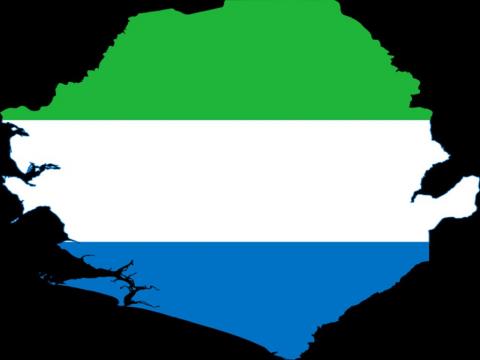By Hawa Sally Samai
Just the other evening, I was dining with several guests a few of whom I met for the first time. Our discussions covered a wide range of topics – national and international. In the middle of the conversation, one of the guests asked for my name. I willingly told him. Later on as we discussed national issues, he interrupted and asked me politely ‘what is your tribe?’ Unlike many Sierra Leonean names, mine does not easily fit into the common and usually erroneous stereotypes – for example all Kamaras are from the north and all Sandys are from the South-East etc etc. My polite reply to the very educated and witty gentleman was “I am a Sierra Leonean’. He repeated his question, clearly assuming that I did not understand the difference between ethnicity and nationality. With a wry smile, I responded again that “I am a Sierra Leonean.”
My response to the gentleman is now my standard response to anyone who asks me about my ethnicity. Too often people in our country are obsessed about tribe. Sadly in Sierra Leone, as in most of Africa, ethnicity is drawn to the centre of the intense struggle for resources, jobs, government positions, educational enrolments, scholarships, contracts etc. In many severely divided nations ethnicity finds its way into a myriad of development issues including land. As Emmy Irobi puts it in his article “Ethnicity and Nation Building in Contemporary Africa: A Perspective for Nonkilling”, "(C)haracteristically issues that would elsewhere be relegated to the category of routine administration assume central place on the political agenda of ethnically divided societies. This is the case in some poly-ethnic African states where public issues have become a matter of ethno-national rivalry and killing because of lack of virile democratic institution of bureaucracy and mediation.’
According to the final report of the Truth and Reconciliation Commission, set up to create an impartial historical record of violations and abuses of human rights and international humanitarian law related to the armed conflict in Sierra Leone, “(T)he Commission finds that divisions along ethnic and regional lines characterized the post-colonial period. Successive regimes favoured certain ethnic groups over others with regard to appointments in cabinet, the civil service and army. Sierra Leoneans owed loyalty to their respective ethnic group rather than to the nation. They became captive to different systems of patronage. The basis for political, social and economic mobility was dependent on allegiance to a "pa" (benefactor) rather than effort based on merit. By the end of the 1980s, Sierra Leone had become a deeply fragmented country, marked by an almost total lack of national identity. Notions of citizenship and patriotism had become meaningless concepts.” Against this background it was easy for the state to fall against the onslaught of the RUF rebels.
In addition, the Commission found “that the Colonial power in Sierra Leone deliberately created two nations in the same land, one in the colony and the other in the protectorate. The impact of the separate development policies had far-reaching consequences, particularly in the fields of education, access to resources and in the social and political development of the two regions. The policies of the Colonial government led to the preferential development of the Colony at the expense of the Protectorate.’
Although the TRC primarily focused on events that led to the war in Sierra Leone, its findings are very pertinent today. This is clearly and further illustrated in the recently launched report on the underlying causes of fragility and instability in Sierra Leone. The report states that “(T)he general elections did not provide the opportunity for citizens to pronounce on the performance of those in control of the state apparatus and make changes. This was primarily because ethnic loyalties largely determined representation in Parliament, and concerns about accountability or influence-peddling were swept behind the defensive protection of one ethnic group against other groups. That the current (2012-2017) composition of Parliament reflects sharply the divide along ethnic lines with the opposition mainly from the south, is ominous of the future if the next Parliament reinforces this divide.” The same may be said of the current parliament.
Ethnic division was a cornerstone for European colonial rule in Africa. According to Emmy Irobi although the phenomenon of ethnicity is not unique to Africa, it has nevertheless, left an indelible mark on the sand of African political history mainly because of how it was politicized and channelled to a dangerous divisive agenda that has claimed many lives. Ethnicity becomes deadly when it is politicised and used as an instrument for a goal that benefits a set of political elites. Sadly, diversity or ethnic pluralism has not been harnessed as a strength to promote national unity and consciousness. This is a major impediment to progress as national programmes are assessed and embraced primarily according to ethnic origin.
Over 50 years after independence, it is time to prioritise our Sierra Leoneanness. It is time for national and social cohesion. We must see each other as Sierra Leoneans first and foremost and not as Loko, Vai, Kissi or Yalunka. As we introduce free education, one way of building social cohesion and a national identity is by reintroducing in our educational curriculum Civics and other subjects that emphasise strength in diversity, inter-ethnic relations and shared values required for a harmonious living while at the same time highlighting the evils of politicised ethnicity which is a harbinger of conflict. We can develop faster as a nation if we build a Sierra Leonean citizenship that demands a culture of mutual respect, understanding and tolerance by Sierra Leoneans for all Sierra Leoneans
Hawa Sally Samai works for Advocacy Movement Network (AMNet) Sierra Leone.








